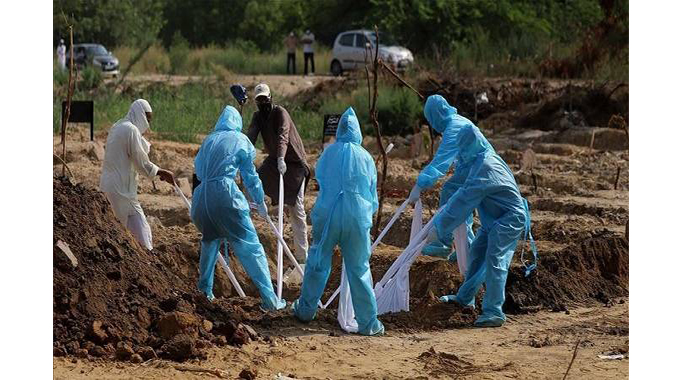Source: Forget about traditional funeral rituals: MP | The Sunday News
Robin Muchetu, Senior Reporter
THE death of five people in Lower Gweru from Covid-19 after performing body viewing of a deceased relative from South Africa has raised concerns over rites traditionally observed upon the passing on of loved ones.Reports are that the body of the deceased was brought in from South Africa for burial in Chief Sogwala Madikani area in the Midlands province, but relatives of the deceased did not want to “bury a coffin whose contents they did not know” and went on to open it.
It is suspected that is how the contamination of the villagers took place. The ripple effect of the infections attributed to this one incident has seen the virus also claiming the life of Bulawayo socialite and businesswoman, Ms Memory Ngwenya (41) whose mother had attended the super spreader event and also eventually succumbed to the virus.
Member of Parliament for Vungu which covers Lower Gweru Cde Omega Sibanda said cultural practices performed at funerals must be temporarily abandoned in order to preserve lives during this Covid-19 period.
“What we are saying is, when a body comes from South Africa or even locally, let’s treat them as bodies with Covid-19 because we do not know their status. When people die in the villages there is a tendency to wash the body and dress it up, that must stop.
“They must quickly call local health officials to attend the case than to start handling the body themselves and contracting the virus if that person had Covid-19 just like what we witnessed in Chief Sogwala’s area,” said Cde Sibanda.
The MP revealed that many people had died in the area just by opening the coffin of the deceased person.
“I also discourage women from sitting in a room with a corpse, traditionally we see the women do that, I say this practice must come to an end forthwith, whether the person died from Covid-19 or not, let the corpse be in a separate room from where the people will be.
“In the villages, I implore village heads to supervise the digging of graves and that team that will have dug the grave must disperse and not mingle with the mourners.
“There is no need to kill a beast like we always do at funerals, the numbers will be very small so people can make do with a goat. The challenge is that when a beast is slaughtered hundreds of people gather because there is food,” he added.
Cde Sibanda bemoaned the fact that the people who brought the corpse from South Africa did not wait to perform their duties but immediately returned to South Africa.
“The funeral parlour came with the corpse from South Africa and dumped the corpse and left, this is why the family had the chance to open the coffin and conduct body viewing without anyone deterring them.
“This corpse did not come via the normal channel that we know, that was the challenge. This situation was avoidable had the funeral parlour that brought the corpse waited to bury the person. Certainly, they were going to tell them what to do and what not to do, whether Covid-19 or not,” he lamented.
Councillor Elias Mbiba of Ward 2 in Madikani where the deaths and infections took place had this to say: “There was a body that did arrive from South Africa and parents then said they could not bury a person without physically seeing the body and they went on to open the sealed coffin. They said they entered as 10 family members and that is where the trouble started.”
Veteran culturalist Pathisa Nyathi said if people follow cultures in this era, they will perish and the culture will equally die with them.
“The critical thing is that culture belongs to a people and is created by a people for the good of the people. When there are no people there is no culture to talk about.
“That should be the main consideration. Here we are with a terrible situation as exemplified by the Lower Gweru experience, one that will annihilate the population.
“When a disease kills people, there is no culture to talk about. We should be clear about what comes first. Therefore, it should be about the sustenance of human beings to ensure they live because culture lives through people,” he said.
Newer Post
Govt studies vaccination for children Older Post
IDBZ to set up climate finance facility 
COMMENTS